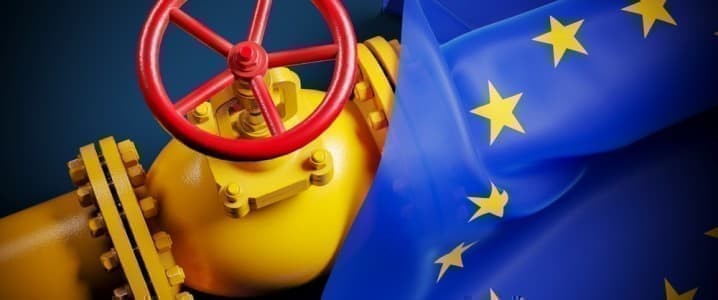Norwegian energy giant Equinor (former Statoil) has signed a 10-year supply agreement with German state-owned energy company SEFE (Securing Energy for Europe). The deal entails the delivery of 111 TWhours (10 billion cubic meters - bcm) of natural gas per year from 1 January 2024 until 2034, including the option of extension of another 5 years, at terms reflecting market prices. As stated by Equinor, the deal is around 33% of total German industrial demand at present. The Norwegians also reported that the additional 5-year period is for a total of 319 TWh (around 29 bcm) over the period. Analysts already have put the total value of the deal at around 50 billion euros ($55 billion).
At the same time, Equinor reiterated that it has signed a non-binding letter of intent (LoI) with the intention that SEFE will become a long-term off-taker of giga-scale, low-carbon hydrogen supplies from Equinor starting in 2029 and continuing towards 2060. According to Anders Opedal, Equinor’s CEO, the deal is “a response to Europe’s need for long-term, reliable supply of energy and a viable route to decarbonization at scale”. Germany has been since the start of Norway’s gas exports in 1977 a major market. Opedal stated also that the LOI is meant “to explore opportunities to supply SEFE with low-carbon hydrogen at industrial scale for decades to come, enabling European industries and flexible gas power plants to accelerate decarbonization”. Egbert Laege, SEFE’s CEO, stated that “the procurement of natural gas from the Norwegian continental shelf ensures the sustainable and future-proof supply for European and, in particular, German customers in the household and industrial sectors”.
As is known, Germany’s current energy supply situation is rather dire, due to the loss of Russian natural gas supplies and higher energy prices overall. Reports are showing that Germany’s industrial and manufacturing base, the main cornerstone of the country’s economy, is confronted by severe threats. Some reports already have indicated that Europe’s main economic power could be facing a deindustrialization situation in the coming years, as lots of industrial giants and producers are even looking to leave Germany to set up shop elsewhere. In the statement made by Equinor and SEFE, Laege also indicated that both companies share the ambition to accelerate the hydrogen economy. He indicated that SEFE Group’s storage company Astora could be a key building block in this.
How far all of this is going to materialize even in the coming decades is still unclear, especially when looking at the lack of demand for green hydrogen or ammonia, while at the same time, the new commodities do not even have a price-point set. Customers or clients are interested, but without a real price indicator, no real volumes will be traded for sure. It is also very interesting to see what the role of this deal will be in light of ongoing discussions or potential hydrogen deals between the Norwegians and other main players, such as Dutch Gasunie. The German pull could be constraining others, leading to potentially major supply problems or cancellation/delays of investments.
SEFE is expected to become a long-term off-taker of low-carbon hydrogen from Equinor in the future. Equinor targets to supply low-carbon hydrogen to SEFE at industrial scale, 5TWh per year by 2029, ramping it up to 50TWh per year by 2050. SEFE was set up by the German government in 2022 after Berlin nationalized Gazprom Germania GmbH.
The Equinor-SEFE deal comes at the right time, looking at the increased volatility in European gas markets due to the Ukraine war and the current Red Sea Houthi maritime crisis. Increased fear in the market about possible supply constraints, as major shipping lines have stopped their Red Sea passage after attacks by Yemen Houthis on perceived Israeli vessels, has already pushed up European front-month deliveries up by more than 11%. The market reaction is clearly linked to statements by British oil and gas major BP and others that oil deliveries through the Red Sea have been suspended. Looking at the Red Sea's role in European LNG deliveries, the impact should not be extremely harsh, as only 5% of European LNG imports at present are from Qatar. European gas storages are also still very well stocked, with most analysts expecting that the current winter draws will not even hit 50% of total storage.
By Cyril Widdershoven for Oilprice.com
More Top Reads From Oilprice.com:
- Is It Time To Embrace Geoengineering?
- The 10 Most Influential Figures In The History Of Oil
- Oil Prices Poised to Bounce Back in 2024


















